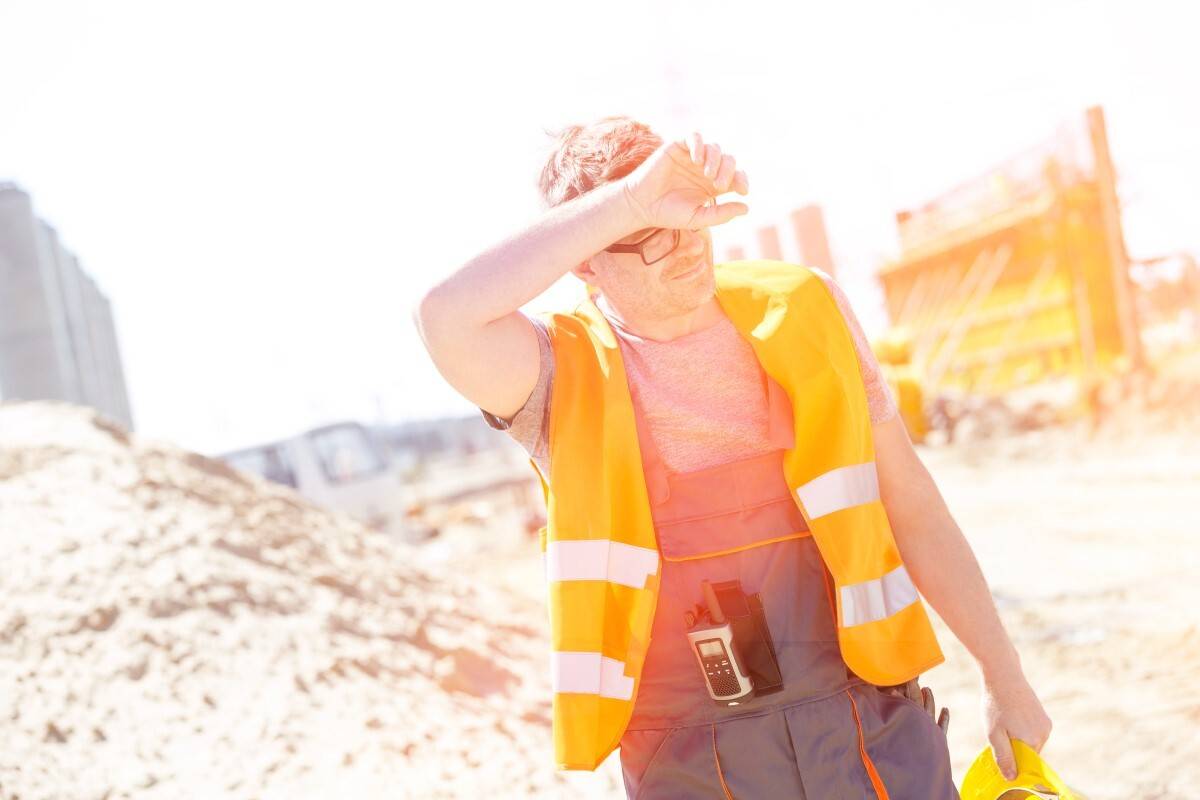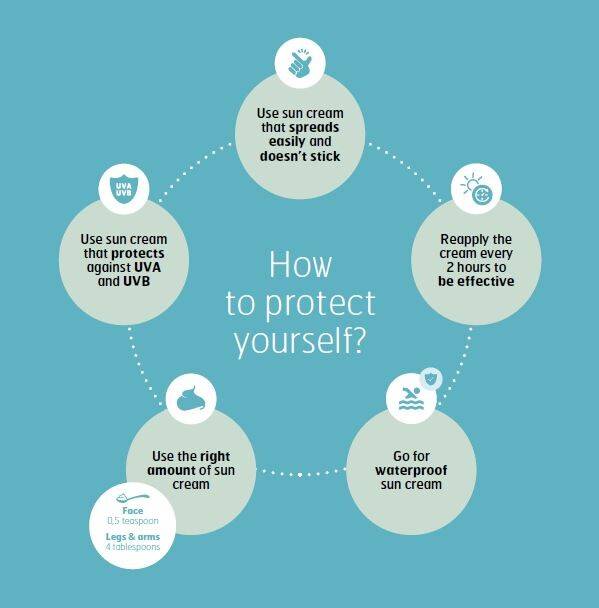Comprehensive studies emphasise the important role of sunscreen for outdoor workers in preventing skin cancer
For years, research has emphasised the essential role of sunscreens in protecting people who spend time outdoors from the dangers of skin cancer[1]. Studies by renowned health institutes have shown that sunscreens significantly reduce the risk of skin cancer, especially in people who are exposed to the sun for long periods of time.
The importance of sunscreen
The importance of sunscreen is still underestimated. A public health study found a remarkable decrease in skin cancer rates when people consistently applied sunscreen compared to those who did not[2]. This proofs that good rubbing habits help.

The protective effect of sunscreens against skin cancer
Experts attribute the preventive effect of sunscreens against skin cancer to their ability to block harmful ultraviolet (UV) radiation[3]. UV radiation can cause DNA damage in skin cells and thus pave the way for cancerous tumours. Sunscreens form a protective barrier on the surface of the skin and act like a shield that effectively reduces the penetration of these harmful rays.
Choosing the right sunscreen
There are several factors to consider when choosing a sunscreen for outdoor work. According to StatPearls Publishing, a leading professional health education and technology company, it is important to choose a broad spectrum sunscreen that protects against both UVA and UVB rays[3]. Dermatologists recommend choosing a high sun protection factor (SPF). The higher the better. Waterproof formulas are recommended, especially for people who sweat or are exposed to water.
Important tips for optimum sun protection
Here are some more tips from experts[4] for optimum sun protection:
- Regular application of sunscreen every two hours, or more often if you sweat excessively or are active in water, is essential for optimum protection.
- Supplement the sunscreen with protective clothing such as a wide-brimmed hat, sunglasses and long-sleeved shirts to further protect the skin from UV damage.

Sun protection takes priority: important for the skin health of outdoor workers
With skin cancer becoming more common, especially among people who work outdoors, the importance of sunscreen in preventing this insidious disease cannot be overemphasised[1]. By heeding the results of these extensive studies and adopting sun-safe practices, people who work outdoors can protect themselves from UV-induced skin damage for the benefit of their health.
With the growing demand for effective sun protection solutions tailored to the needs of outdoor workers, products such as Dreumex Sun Protect are being developed. Dreumex Sun Protect not only provides broad spectrum protection against UVA and UVB rays and a high SPF, but is also water resistant so that it remains long-lasting and effective even in demanding outdoor environments. With its lightweight, non-greasy formula, Dreumex Sun Protect is specifically designed to meet the unique needs of outdoor workers, providing unrivalled protection without compromising comfort or productivity.
Take responsibility for the health of your skin: download our sun protection infographic for important information on sun protection
Help yourself with knowledge and take proactive measures to protect your skin from the sun's harmful rays. Download our infographic on the importance of choosing the right sunscreen for people who work outdoors and discover valuable insights to protect your skin's health for years to come. Together, let's prioritise sun protection and cultivate a sun-safe lifestyle to ensure a better and healthier future for all.
[1] Source: Traketelli, M., Barkitze, K., Apap, S., Majewski, S., & De Vries, E. (2016, March). Skin cancer risk in outdoor workers: a European multicenter case–control study. Journal of the European Academy of Dermatology & Venereoloty. https://onlinelibrary.wiley.com
[2] Source: Symanzik, S. (2022). Prevention of occupational hand eczema
[3] Source: Gabros, S., Nessel, T.A., & Zito, P.P. (2023, July). Sunscreens and Photoprotection. StatPearls Publishing. https://www.ncbi.nlm.nih.gov/
[4] Source: Hopkins Medicine Staff. (2021, June). How to protect yourself from the sun. Johns Hopkins University. https://wellbeing.jhu.edu

